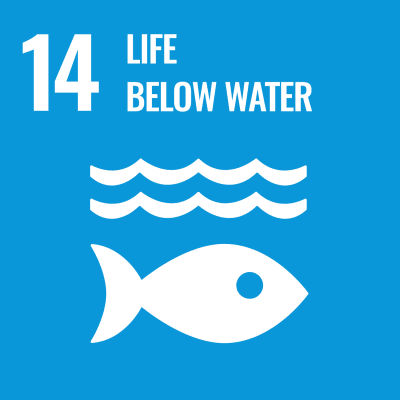-
Faculty of Veterinary Medicine, Department of Veterinary Medicine
- Professor
- Yasunori SHINOZUKA
- Research Field
Preventive Veterinary Medicine
- Keyword(s)
dairy cattle, mastitis, 16S rRNA
- Research theme
-
- Exploring the possibility of new prevention and treatment of mastitis using milk microbiota
Outline of research activities

Our laboratory has established a technique to examine the composition of the mammary flora by comprehensively analyzing the bacterial DNA (16S rRNA gene) contained in milk. Using this technology, we clarified that the relationship between SCC and mammary flora composition of healty cows (left figure). It has also become clear that there is a possible relationship between the composition of the mammary flora and the amount of the immune substance (lactoferrin) contained in milk (right figure). We are conducting research not only for the development of new treatments for bovine mastitis, but also for the application of new mastitis prevention methods using intramammary innate immunity.

- Desired cooperation
-
- Accumulation of basic knowledge on milk microbiota
-
Faculty of Veterinary Medicine, Department of Veterinary Medicine
- Associate professor
- Akira Goto
- Research Field
Farm Animal Veterinary Medicine
- Keyword(s)
Theriogenology, Preventive veterinary medicine
- Research theme
-
- Evaluation of production problems using production records.
- Improving reproductive performance of cattle
- Bovine clinical case study
Outline of research activities

Prospective veterinary medicine for farm animals should endeavor to augment productivity by incorporating strategies to combat production maladies, all the while actively contributing to the prevention and containment of infectious diseases. Through a focused emphasis on theriogenology and herd health management, our aim is to undertake research endeavors that elucidate the etiology, mechanisms, and pathogenesis of diseases in both individual animals and populations, with the overarching objective of advancing diagnostic and therapeutic methodologies.

- Desired cooperation
-
-
Faculty of Veterinary Medicine, Department of Veterinary Medicine
- Associate professor
- Akira MATSUDA
- Research Field
Veterinary internal medicine, Dermatology
- Keyword(s)
Skin barrier, Cutaneous immunology, Drug resistance
- Research theme
-
- Development of new topical agents for animals
- Skin pH and skin barrier
- Sebocytes in canine atopic dermatitis
- Drug resistance in canine mast cell tumor
Outline of research activities
In recent years, the importance of skincare in veterinary medicine has become widely recognized. However, it is known that the epidermis of dogs is much thinner compared to humans. As a result, it remains uncertain whether applying the same skincare practices as humans is appropriate for dogs. In our research laboratory, we are conducting studies on various factors that regulate skin barrier and skin immunity using Beagle dogs and cultured cells. Our goal is to apply the research findings to the field of veterinary clinical practice.
- Desired cooperation
-
- The development of drugs and supplements targeting animal skin diseases
- Analysis of the skin microbiota in dogs
- Analysis of the skin barrier
- Product development in veterinary medicine
-
Faculty of Veterinary Medicine, Department of Veterinary Medicine
- Associate professor
- Fumiyo SAITO
- Research Field
Toxicology, Molecular biology, Risk analysis
- Keyword(s)
Hepatotoxicity, Gene expression analysis, Omics analysis, Molecular pathways
- Research theme
-
- Mechanism analysis of hepatotoxicity and nephrotoxicity
- Mechanism analysis of inter-organ coordination on energy metabolism
- Biomarker Search in Canine Frailty
Outline of research activities



Despite being primarily developed for industrial purposes and not intended for direct human consumption, many chemical substances still come into contact with the human body and organisms in the environment through various pathways, such as water, air, and other environmental factors. Ensuring a safe and secure society requires a thorough evaluation of the toxicity of pharmaceuticals and chemical substances.
In our laboratory, we conduct research on the toxicity of chemical substances through comprehensive gene expression analysis and obtain omics data to elucidate the molecular-level mechanisms, a field known as toxicogenomics. In addition to utilizing omics technology for understanding the inter-organ coordination of energy metabolism in vivo, our research also focuses on elucidating pathological processes in both humans and dogs.
- Desired cooperation
-
- Data science (machine learning, data mining, etc.)
- Various disease models (genetically engineered animals, clinical samples, etc.)
-
Faculty of Veterinary Medicine, Department of Veterinary Medicine
- Associate professor
- Hidekazu TAKAHASHI
- Research Field
Environental health, Public health
- Keyword(s)
Environmental Microbes, Pollutants, Data analysis
- Research theme
-
- Microorganisms and pollutants in water and soil etc.
- Analysis of disease data, public data, etc.
Outline of research activities




We mainly conduct research related to environmental health. We are working on microorganisms, viruses, contaminants, etc. that exist in water and soil. We also aim to search for useful microorganisms that can contribute to solving environmental problems. We also conduct research using epidemiological and informatic methods.
- Desired cooperation
-
- Instrumental analysis
-
Faculty of Veterinary Medicine, Department of Veterinary Medicine
- Associate professor
- Hirohito OGAWA
- Research Field
Virology, Micorobiology, Zoonosis
- Keyword(s)
Viruses, Bacteria, Infectious Diseases, Epidemiology, One Health
- Research theme
-
- Epidemiological investigations of zoonotic diseases
- Establishment of mammalian cell lines and diagnostic methods for infectious diseases
- Studies on host specificity of viruses
- Studies on endogeneous virus-like elements
Outline of research activities


Changes in the global environments have increased incidence of infectious diseases. Most of these diseases are zoonoses which are transmitted from animals to humans. It is an urgent task to control and prevent of zoonotic disease outbreaks. However, it is not simple and straightforward, since the natural reservoir animals and the transmission routes of the causative agents are not elucidate in all zoonoses. From a glocal perspective, the objective of this project is to forestalling outbreaks of zoonotic infection on the basis of epidemiological investigations in Shikoku.
Host specificity of infectious agents are interested because the mechanism is different for each infectious agent. Adenoviruses are believed to be co-evolved with their specific hosts, and usually infect one particular or several, closely related host species. However, certain bat adenoviruses exhibited a broad range of in vitro cell tropism. We try to elucidate its host-range determinants.- Desired cooperation
-
- Pathology
- Mass spectrometry
- Bioinformatics
-
Faculty of Veterinary Medicine, Department of Veterinary Medicine
- Associate professor
- Kei-ichi KATAYAMA
- Research Field
Laboratory animal science, Neroscience
- Keyword(s)
Neuropsychiatric disorder, Model animal, Neural development
- Research theme
-
- Pathogenesis of neurological and psychiatric disorders
- Mechanism of neural network formation
- Generation of animal models of disease
Outline of research activities

For neruvous system to function properly, each component cell must be produced in adequate numbers, placed in the correct position, and correctly networked with each other. Any failure in any of these processes can impair neurological function and cause neurological and psychiatric disorders. Through the generation and analysis of animal models of neurological and psychiatric disorders, I am working to elucidate the pathogenesis of these diseases and to understand the fundamental mechanisms underlying the development of neural tissue, especially the process of neural network formation.
- Desired cooperation
-
- Pathogenesis of neurological and psychiatric disorders
- Generation and analysis of animal models of disease
-
Faculty of Veterinary Medicine, Department of Veterinary Medicine
- Associate professor
- Keiichi HISAEDA
- Research Field
Livestock Hygiene, Clinical Veterinary Medicine for Production Animals
- Keyword(s)
Mastitis, Milk squeezing hygiene, Livestock feeding management, Infectious diseases
- Research theme
-
- Research on pathogenesis and control of mastitis in dairy cows
- Research on productivity improvement in livestock production
- Research on the Role of Livestock Production in Climate Change and its Contribution to Society
- Research on the improvement of medical treatment techniques in clinical practice for industrial animals. etc.
Outline of research activities

Mastitis is the most devastating economic burden in dairy farms. We have studied the epidemiology of acute mastitis caused by coliforms, the relationship between clinical symptoms and cytokines and acute phase proteins, and the relationship between symptoms and prognosis, and found a link. In addition, in the treatment of mastitis, it was found that the application of a lotion with antibacterial activity (Ceramella) to the inflamed udder, in addition to conventional antibiotic treatment, decreases breast induration and somatic cell count. Studies have shown that the shorter the milk is cultured, the more causative organisms are detected in bacteriological tests of milk. As for prevention of mastitis, administration of a leptospirosis vaccine has been shown to reduce clinical forms of mastitis. It was also found that the severity of symptoms of acute mastitis caused by Escherichia coli was related to the level of ionized calcium in the blood at the time of initial examination. We are studying prevention, treatment, and prognosis of mastitis in dairy cows. It was found that there is a relationship between blood physiological changes in dairy cows in response to climatic changes and stress. Based on the results of this research, we would like to further our research on improving milk productivity.
- Desired cooperation
-
- Research and drug development for prevention and treatment of mastitis
- Research on Biocides and Improvement of Livestock Productivity
- Research on Climate Change and Animal Welfare in Industrial Animals
- Research on infectious disease control in production animals. etc.
-
Faculty of Veterinary Medicine, Department of Veterinary Medicine
- Associate professor
- Koji HAYAKAWA
- Research Field
Epigenetics
- Keyword(s)
Chromatin, DNA and histone chemical modification
- Research theme
-
- Studies on interaction between nutrition and epigenetic regulation
- Studies on the function of histone O-GlcNAc modification
- Studies on cell- and disease-type specific gene regulation
Outline of research activitiesSince the Human Genome Project completed sequencing the 3 billion bps that make up human DNA, it became clear not only that we are able to read nature’s complete genetic blueprint, but also that the information stored in the sequence of the DNA is not enough per se to completely explain development, physiology and disease. The field dedicated to decipher the heritable features that complements the genetic information stored in the DNA sequence is termed “epigenetics”.
Epigenetic regulation provide a possible link between the environment and long term alterations in gene function that might lead to disease phenotypes. Most diseases are related in some way to the loss or gain in gene functions. To reveal the cause and mechanism of chronic disease (e.g. diabetase and hypertention), we mainly focus on the interaction between nutritional condition and epigenetic alteration.- Desired cooperation
-
- Studies on Chronic diesase
- Bioinformatics
- Developmental engineering
-
Faculty of Veterinary Medicine, Department of Veterinary Medicine
- Associate professor
- Kosei NAKAJIMA
- Research Field
Comparative Orthopedic Surgery
- Keyword(s)
Bone reconstructive surgery, Bone microenvironment
- Research theme
-
- Bone reconstructive surgery of extremity and spine
- Analysis of microenvironment
Outline of research activitiesTo provide sophisticated treatments as seen in human medicine to animal patients, I have strived to conduct researches in the medical institutions of orthopedic surgery.
First, clinical orthopedic researches are ongoing. The clinical image is an example of bone reconstructive surgery after removal of malignant bone sarcoma. Thus, human surgical techniques are applicable to animal patients.
Second, in musculoskeletal tumor field, the multidisciplinary treatments including particle radiation and a novel target therapy for hard-to-treat cancers are ongoing in cooperation with National Cancer Center, Ehime University Orthopedic Surgery, Hyogo Ion Beam Medical Center and Karmanos Cancer Institute. The results can contribute to the animal patients of musculoskeletal tumors with no choice of therapy.
Third, translational researches are also ongoing. The analysis of microenvironment have been complicated because millions of molecular interactions are possible. Hence, using bioinformatics technologies, a software has been constructed to visualize these numerous interactions.
- Desired cooperation
-
- Clinical application of a novel orthopedic implants
- Microenvironmental analysis of various biological tissues
-
Faculty of Veterinary Medicine, Department of Veterinary Medicine
- Associate professor
- Michihito TAGAWA
- Research Field
Oncology, Internal Medicine, Clinical Pathology, Immunology
- Keyword(s)
Dog, Cat, Liquid biopsy, Cytology, Anticancer drug exposure
- Research theme
-
- Development of novel tumor diagnostic markers for dogs and cats
- Establishment of liquid biopsy in veterinary medicine
- Anticancer drug exposure risk survey in animal hospitals
Outline of research activities
Due to improvements in breeding methods and advances in veterinary medicine, the average lifespan of pets has increased dramatically. Unlike humans, animals often do not show their illness even when they are sick, and by the time they notice it, it often progresses and is difficult to treat. Advanced diagnostic imaging such as CT and MRI and various “cancer markers” are used in human medicine, but there are no “cancer markers” that can be used in veterinary medicine, and advanced diagnostic imaging requires high cost and general anesthesia. If there is a disease marker that accurately reflects the pathology of “cancer”, it will be possible for owners and patient animals to avoid the burden of anesthesia and examination, and to objectively judge the need for continuous treatment. Therefore, in recent years, we have focused on a technology called liquid biopsy, which has been attracting attention in medicine, to detect genes circulating in the blood, and we are researching its application to pet cancer. Specifically, we are investigating the usefulness of tumor pathological evaluation and diagnostic markers by measuring the amount of genes released from the tumor itself and detecting specific mutations.

- Desired cooperation
-
- Research on genetic analysis and bioinformatics
- Research on artificial intelligence and deep learning for tumor diagnosis
- Research on cancer and palliative care in veterinary medicine
-
Faculty of Veterinary Medicine, Department of Veterinary Medicine
- Associate professor
- Noritaka MAETA
- Research Field
Tumor Pathology, Surgical Oncology, Immunotherapy
- Keyword(s)
CYR61, MMP, Metastasis, T-LAK
- Research theme
-
- Protein to become the prognostic index of the cancer in the animal
- Mimally invasive surgery
- Influence of the immunotherapy on dog
Outline of research activities1. We investgate protein with the possibility to become the prognostic index of the cancer in the animal. We especially focus on CYR61, and investigate the mechanism of the metastasis and relations with CYR61 and tumor invasion, and usability as prognositicindex of CYR61.
2. We will study methods to maintain the quality of life of postoperative animals, by dveloping new surgical methods and assisting the functions with artificail materials.
3. We will research the effect on living organism, in addition to the antitumor effect of immunotherapy.
- Desired cooperation
-
- Research on the tumor marker and mechanism of metastasis
- Research on function recovery and function meintenance after surgery using artificial materials
- Research on immunotherapy
-
Faculty of Veterinary Medicine, Department of Veterinary Medicine
- Associate professor
- Sachiko CHIKAHISA
- Research Field
Sleep Physiology, Behavioral Science
- Keyword(s)
Sleep, Energy Metabolism, Behavior, Stress
- Research theme
-
- Sleep and Energy Metabolism
- Sleep Loss and Behavioral Changes
- Stress and Sleep Homeostasis
Outline of research activities
Japanese people sleep less than most developed countries, and one out of every four to five adults has some kind of sleep problem. Sleep deprivation is known to increase the risk of developing depression, anxiety disorders, obesity, and diabetes. My research aims to elucidate the molecular mechanisms underlying these effects of sleep deprivation on the body and mind. In addition, by studying the effects of physical, chemical, psychological, and social stress on sleep homeostasis using mouse models, I aim to elucidate the molecular mechanisms underlying stress-induced sleep disorders and psychiatric disorders and to contribute to the development of preventive and therapeutic methods.
- Desired cooperation
-
- Researches on energy metabolism
- Researches on biological responses to various stresses
- General research on brain functions
-
Faculty of Veterinary Medicine, Department of Veterinary Medicine
- Associate professor
- Shumpei WATANABE
- Research Field
Virology, Immunology, Evolutionary Biology
- Keyword(s)
Paramyxovirus, Bat, Fusion, Biosafety Level 4, Quasispecies
- Research theme
-
- Study of highly pathogenic zoonotic viral diseases
- Mechanism of paramyxovirus infection in the CNS
- Development of attenuated vaccine using codon optimization technique
Outline of research activities
We aim to reveal the mechanism of pathogenicity on highly pathogenic viral zoonoses, using our Biosafety level 3 (BSL3) laboratory, as well as BSL4 facility in the foreign country (as a coolaborative research with Australian Animal Health laboratory, CSIRO).
So far, through a collaborative research with AAHL, we had established the reverse genetics system for nipah virus or hendra virus. By introducing mutations into the viral genome with the system, we are trying to rescue or make mutant virus and characterize the mutant virus. This approach would find or characterize nature of the original virus. Moreover, we would like to develope effective and safe vaccines for the viruses using recombinant mutant viruses.

- Desired cooperation
-
- Pathological researches
- Development of anti-viral drugs using bioinfomatics and synthetic chemistry
- Epidemiological researches on wild animals
-
Faculty of Veterinary Medicine, Department of Veterinary Medicine
- Associate professor
- Takako SHIMOKAWA
- Research Field
Veterinary Nephrology and Urology, Veterinary Internal Medicine
- Keyword(s)
Hemodialysis, Blood Purification Therapy, Acute Kidney Injury
- Research theme
-
- Blood purification therapy in small animal practice
Outline of research activitiesThere are numerous diseases that are difficult to diagnose and refractory to conventional treatments. I have special interests in acute kidney injury, systemic inflammatory response syndrome, sepsis, and refractory immune-mediated diseases. Currently, I am conducting researches on blood purification therapy to establish the means of treatment of these diseases.
- Desired cooperation
-
- Researches on blood purification therapy
-
Faculty of Veterinary Medicine, Department of Veterinary Medicine
- Associate professor
- Tohru MEKATA
- Research Field
Fish pathology, Comparative Immunology
- Keyword(s)
Aquatic pathogens, Disease prevention, Innate immunity
- Research theme
-
- Exploring pathogenic factors in fish and shellfish
- Disease control of farmed fish and shellfish
- Shrimp immunity
Outline of research activities

Two major research themes have been addressed. The first is the identification of novel pathogens and the development of disease control methods for fish and shellfish. In aquaculture farms, mortality caused by unidentified diseases is often observed. The causative factors are quite complex including deterioration of the environment, nutritional disorders, and outbreak of infectious diseases. With recent advances in aquaculture technology, the targeted species for aquaculture have expanded, and new infectious diseases have been reported one after another. Therefore, we are exploring the pathogens using a comprehensive genetics approach to develop the diagnosis methods and control the diseases. Second, we are also studying the unique immune system in shrimp. As invertebrates, shrimp have no adaptive immune system like vertebrates. However, they show some resistance to re-infection of particular pathogen, like a phenomenon known as “immunological memory”. We hope to elucidate the mechanism of this phenomenon and propose new disease control measures to improve productivity.
- Desired cooperation
-
- Histopathological research on emerging diseases
- Molecular epidemiology of aquatic pathogens
- Development of advanced aquaculture techniques
-
Faculty of Veterinary Medicine, Department of Veterinary Medicine
- Associate professor
- Tsunehito HIGASHI
- Research Field
Toxicology, Molecular Pharmacology
- Keyword(s)
Cell Death, Cytotoxicity, Cigarette Smoke, Oxidative Stress
- Research theme
-
- Mechanisms for cytotoxicity of chemical compounds
- Effects of cigarette smoke on cellular activities
- Relationship between oxidative stress and cell physiology
Outline of research activities


There are many types of chemical compounds in our environment, and some of them have negative effects on our bodies. Cigarette smoking is a risk factor for various diseases such as atherosclerosis, hypertention, COPD, and cancer. However, there are no clear information which chemical compounds in the cigarette smoke have negative effects on our bodies and cause these diseases. I have previously identified unsaturated carbonyl compounds as stable cytotoxic factors in the gas phase of cigarette smoke. The unsaturated carbonyl compounds are also contained in the smoke from combustion of organic materials such as woods, oil, coal. Thus, the unsaturated carbonyl compounds are regarded as environmental pollutants. The purpose of my study is elucidation of the molecular mechanisms for cytotoxicity of environmental pollutants including unsaturated carbonyl compounds.
- Desired cooperation
-
- Pathologycal analyses
- In vivo analyses
- Comprehensive analyses
-
Faculty of Veterinary Medicine, Department of Veterinary Medicine
- Associate professor
- Tsuneyuki MASUDA
- Research Field
Animal health and hygiene
- Keyword(s)
Livestock chronic infection, Bovine viral diarrhea, Enzootic bovine leukosis
- Research theme
-
- Effect of chronic infection on productivity
- Establish a model to prevent the spread of BLV and BVD
- Study of insect pest-control using natural maerials
Outline of research activities

Infectious livestock diseases, such as highly pathogenic avian influenza recognized as acute infection that cause tremendous damage to the livestock industry. Acute infections develop relatively early and have significant clinical symptoms, making outbreaks easily recognizable. Conversely, chronic infections that decrease livestock productivity, such as enzootic bovine leukosis (BLV) and bovine viral diarrhea (BVD), have become problematic in recent years. Generally, eradication of chronic infections is extremely difficult and requires considerable time and effort.
I want to study the Effect of these diseases on the livestock industry using field cases, and want to research the viable approach of preventing the spread of BLV and BVD. I also study environmentally friendly insect pest-control using natural materials, such as commercially available diatomite product.- Desired cooperation
-
- Veterinary epidemiology
- Virology
- Theriogenlogy
-
Faculty of Veterinary Medicine, Department of Veterinary Medicine
- Associate professor
- Yoshiki ITOH
- Research Field
Veterinary Ophthalmology, Electrophysiology of Vision
- Keyword(s)
Vision, Cornea, ERG, VEP, Glaucoma, Ophthalmic Disease
- Research theme
-
- Development of visual evaluation method of animals by electrophysiological examination of vision
- Research of animals' vision: the influence of diseases and treatments
- Pathophysiological analysis of ophthalmic diseases using higher order image analysis equipment
Outline of research activitiesVision is indispensable sense “veterinary ophthalmology”, as visual information obtained by seeing the objects is important for us.
However, the “visual acuity” examination using the Landolt’s ring like a human (mark like “C” in the alphabet) is impossible in dogs and cats and other animals. So how do you determine the animal’s visual acuity?
One method is to measure brain waves called “visual evoked potentials (VEP)” and evaluate whether the brain recognized the targets.
We are developing “Visual Evaluation Methods of Animals” using “electrophysiological exams of vision”, including VEP measurement.
We suppose that highly accurate visual assessment of animals will allow us to better diagnose and treat ophthalmic disorders in areas essential to constitute the vision of the cornea, lens, retina, etc. in the eye.In addition, our laboratory uses ophthalmologic examination equipment such as Optical Coherence Tomography (OCT), which has developed remarkably in recent years, in clinical veterinary ophthalmology, and is conducting research on the pathophysiological analysis and treatments of ophthalmologic diseases.

- Desired cooperation
-
- Reseaches on comparative ophthalmology
- Pathophysiological analysis and Treatmetns of Ophthalomic diseases, especially Glaucoma and Retinal diseases.
-
Faculty of Veterinary Medicine, Department of Veterinary Medicine
- Lecturer
- Borjigin LIUSHIQI
- Research Field
Veterinary Animal Hygieiology, Animal Genetics, Zoonotic Disease, Viral Epidemiology
- Keyword(s)
Cattle, Horse, Burkholderia mallei, Mycobacterium bovis, Bovine leukemia virus (BLV)
- Research theme
-
- Control of bovine leukemia virus (BLV) infection using bovine major histocompatibility complex (BoLA) alleles
- The project for control of tuberculosis and glanders
- Genetic analysis of Asian native horses
Outline of research activitiesWe have identified the bovine major histocompatibility gene complex (BoLA) alleles resistant and susceptible for BLV in five tethered house farms in the Kanto region of Japan, and we have conducted the BLV control strategy using resistant and susceptible cattle. In the future, I would like to conduct the strategy utilizing resistant and susceptible cattle in more tethered farms and futhermore in free-ban and free-stall farms.
In the project for control of tuberculosis and glanders, we focused on tuberculosis and glanders, zoonotic bacterial infections prevalent in Mongolia, and the veterinary and medical researchers in Japan and Mongolia are collaborating on this project to conduct epidemiological surveys and develop rapid diagnostic methods for these both diseases.
In addition, I will conduct a study for genetic diversity of Asian native horses.- Desired cooperation
-
- Research for Bovine Leukemia Virus (BLV).
- Research for the epidemiology on livestock infectious.
- Research for horses genetic diversity.








